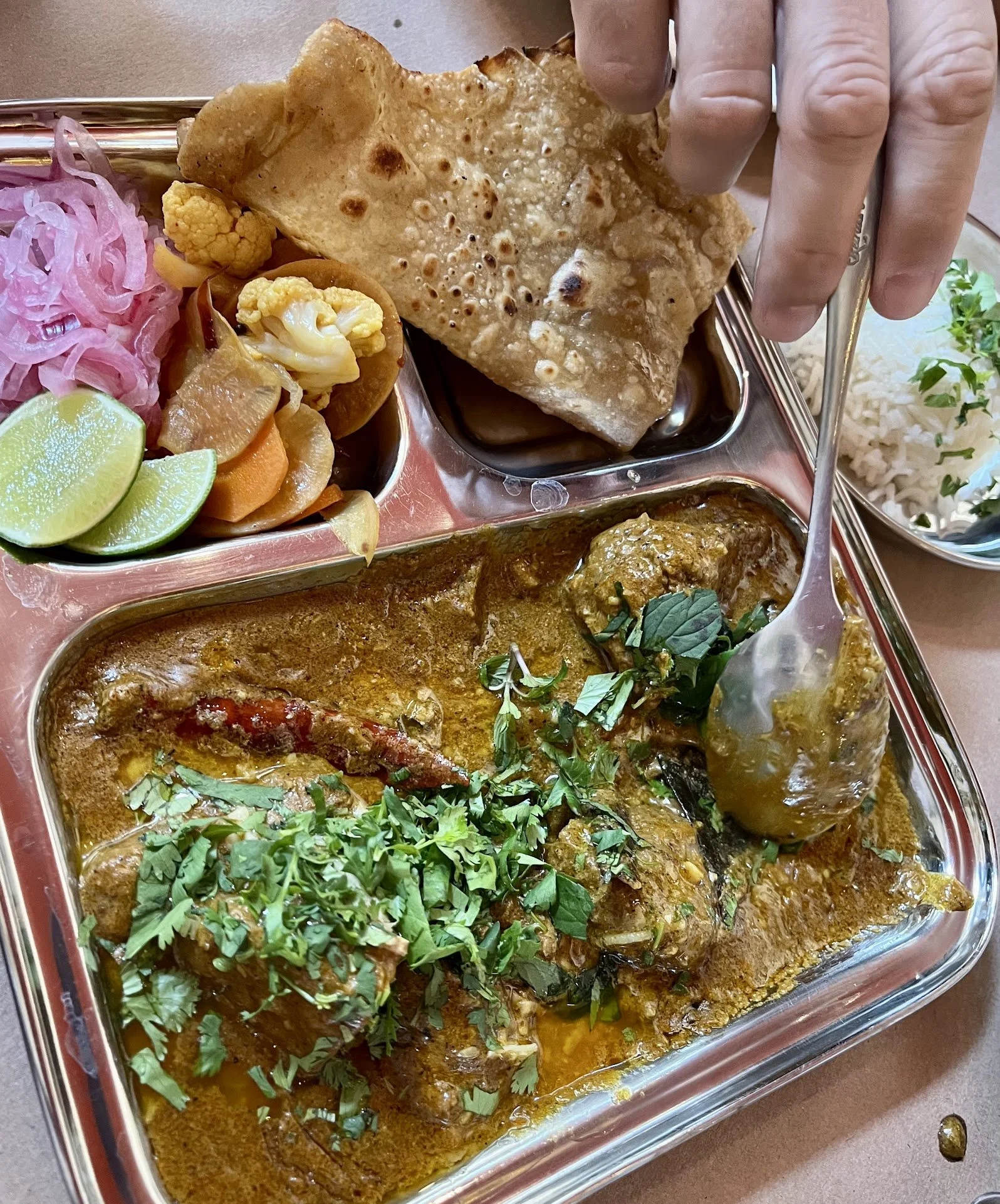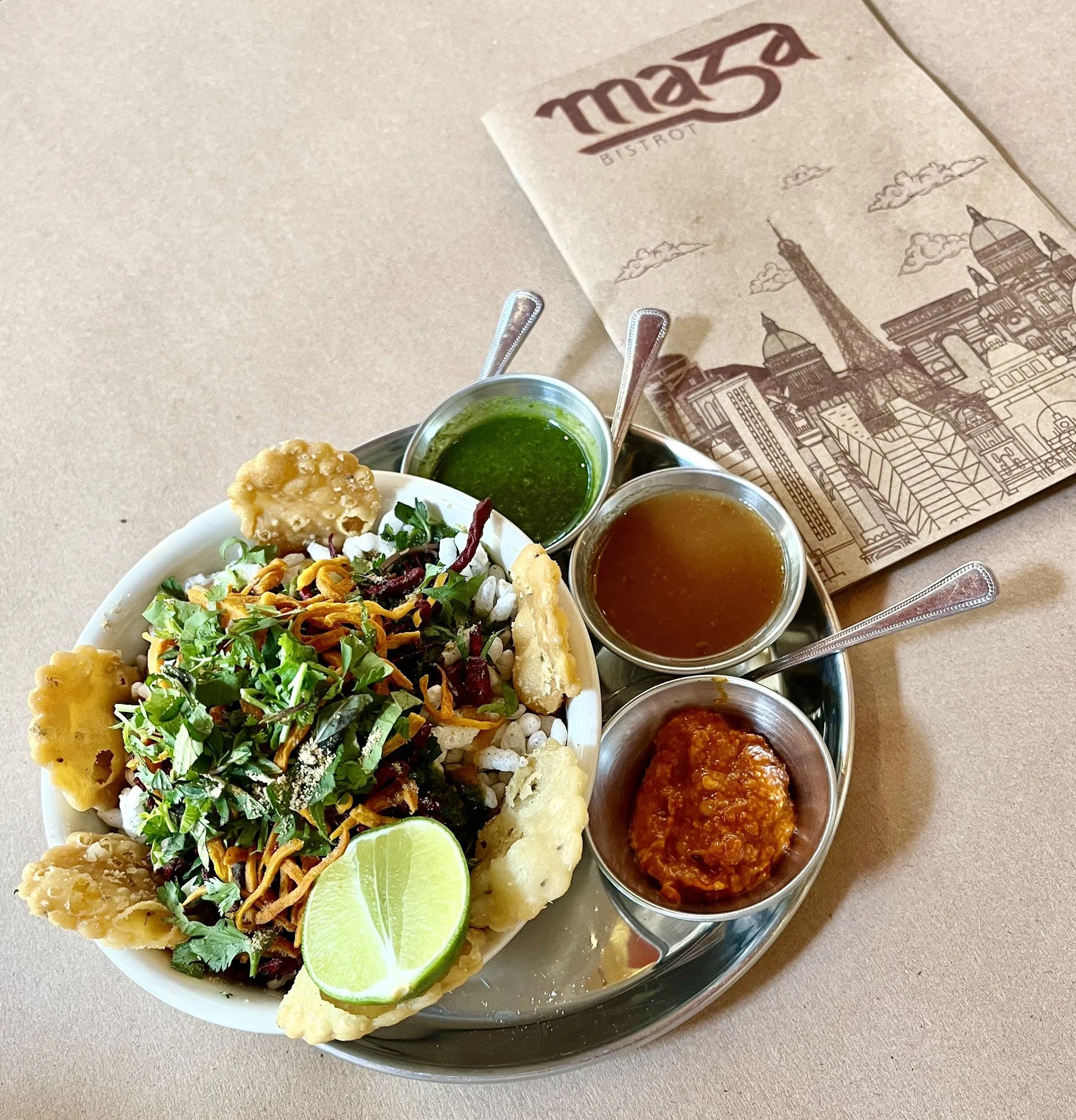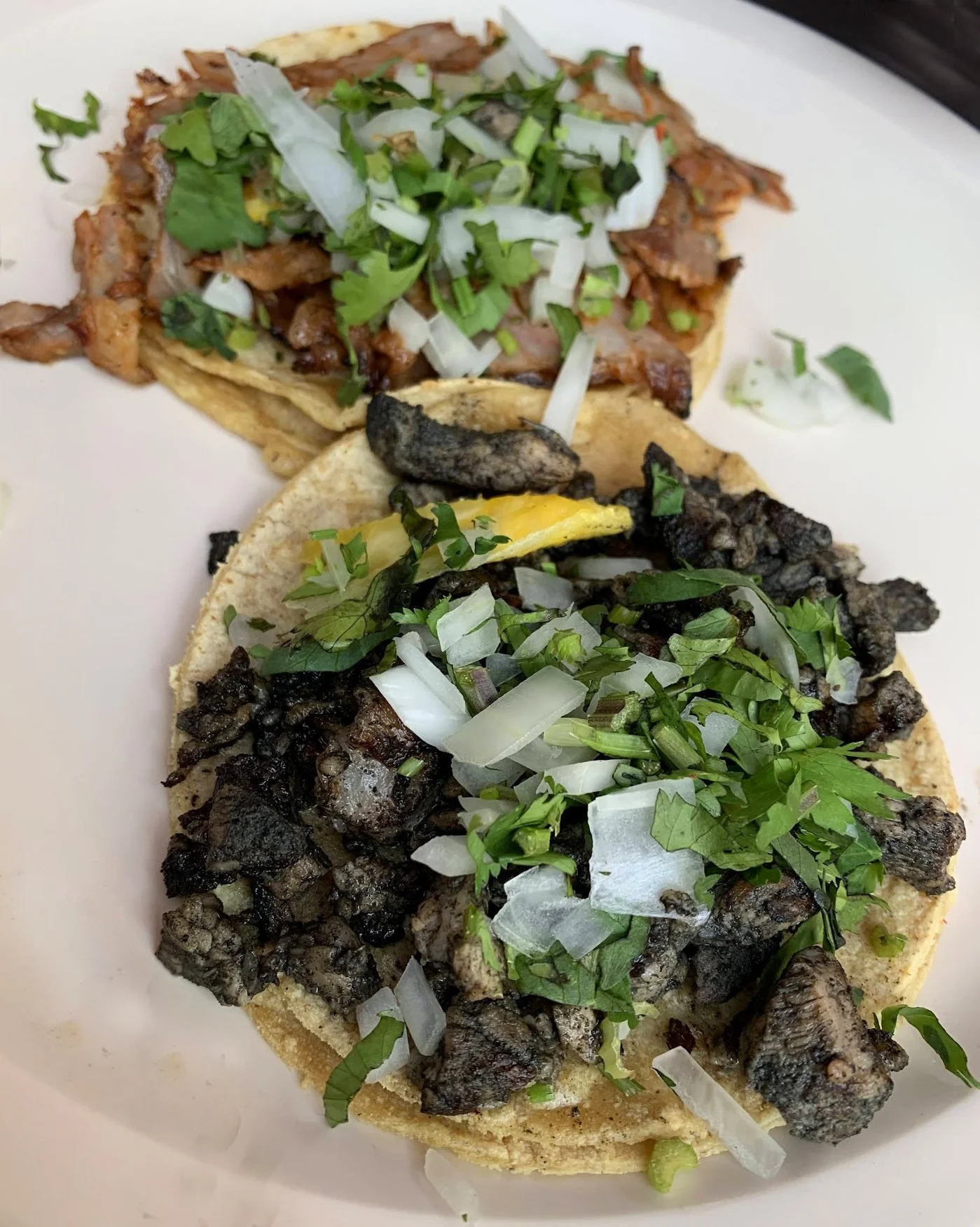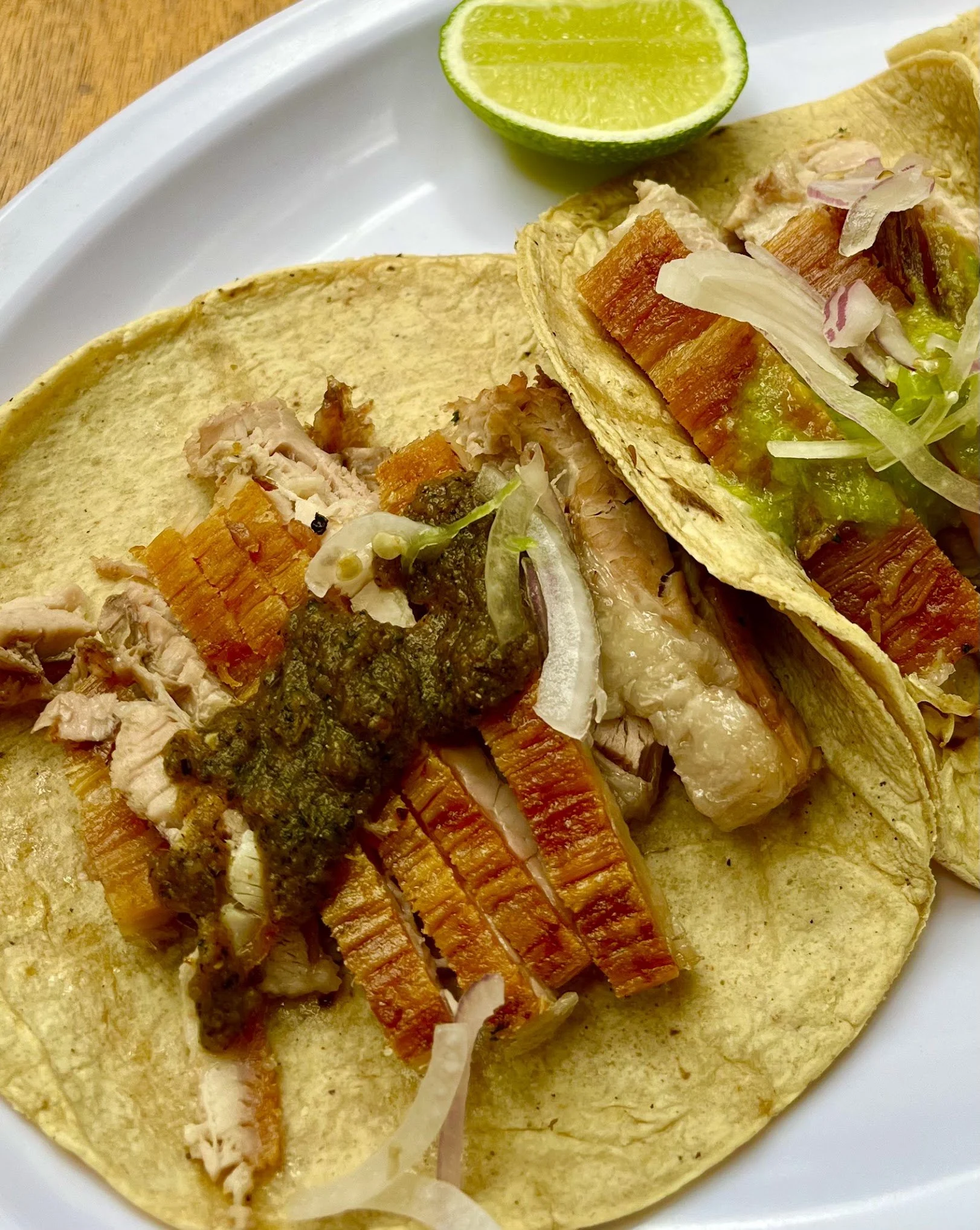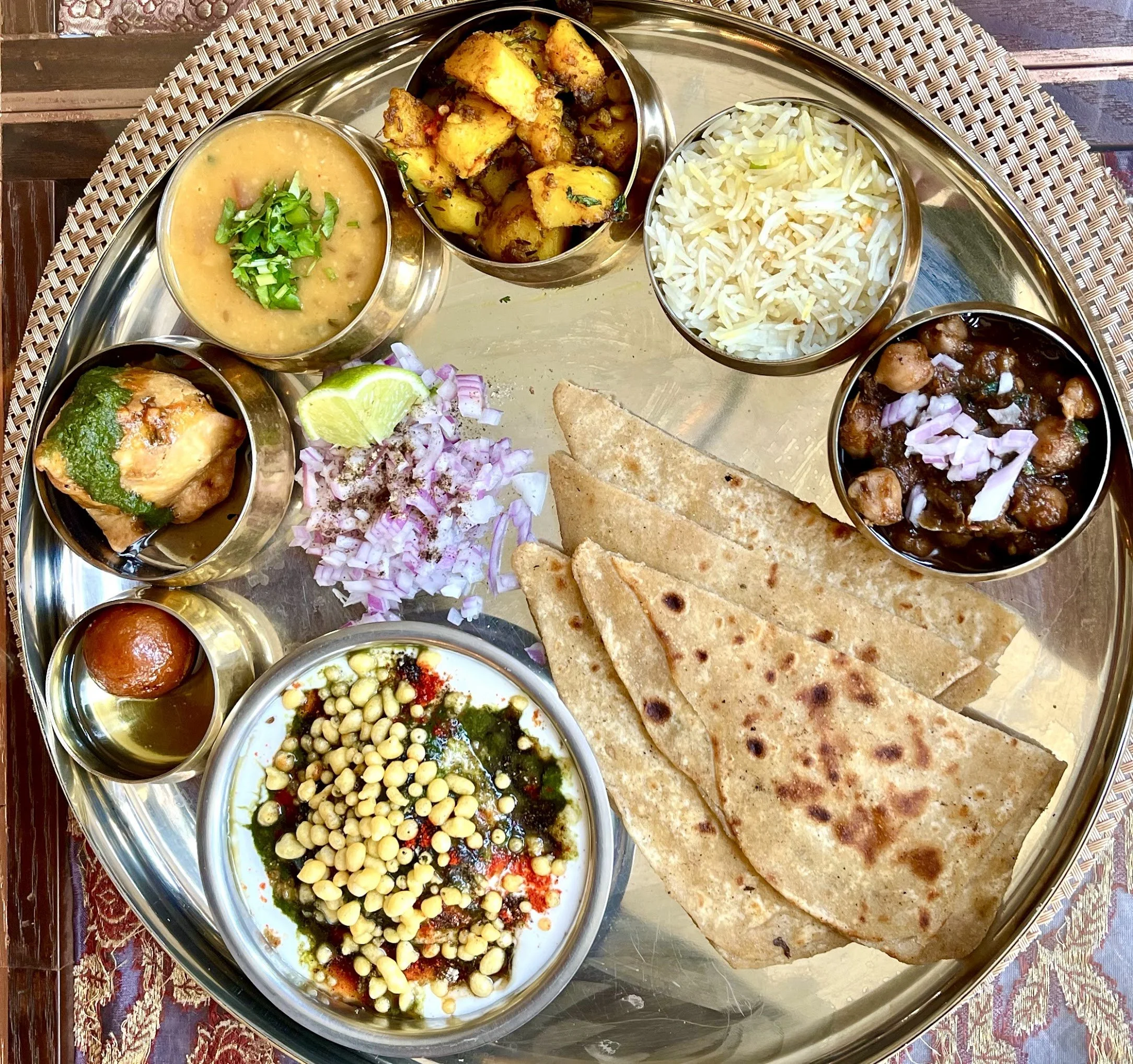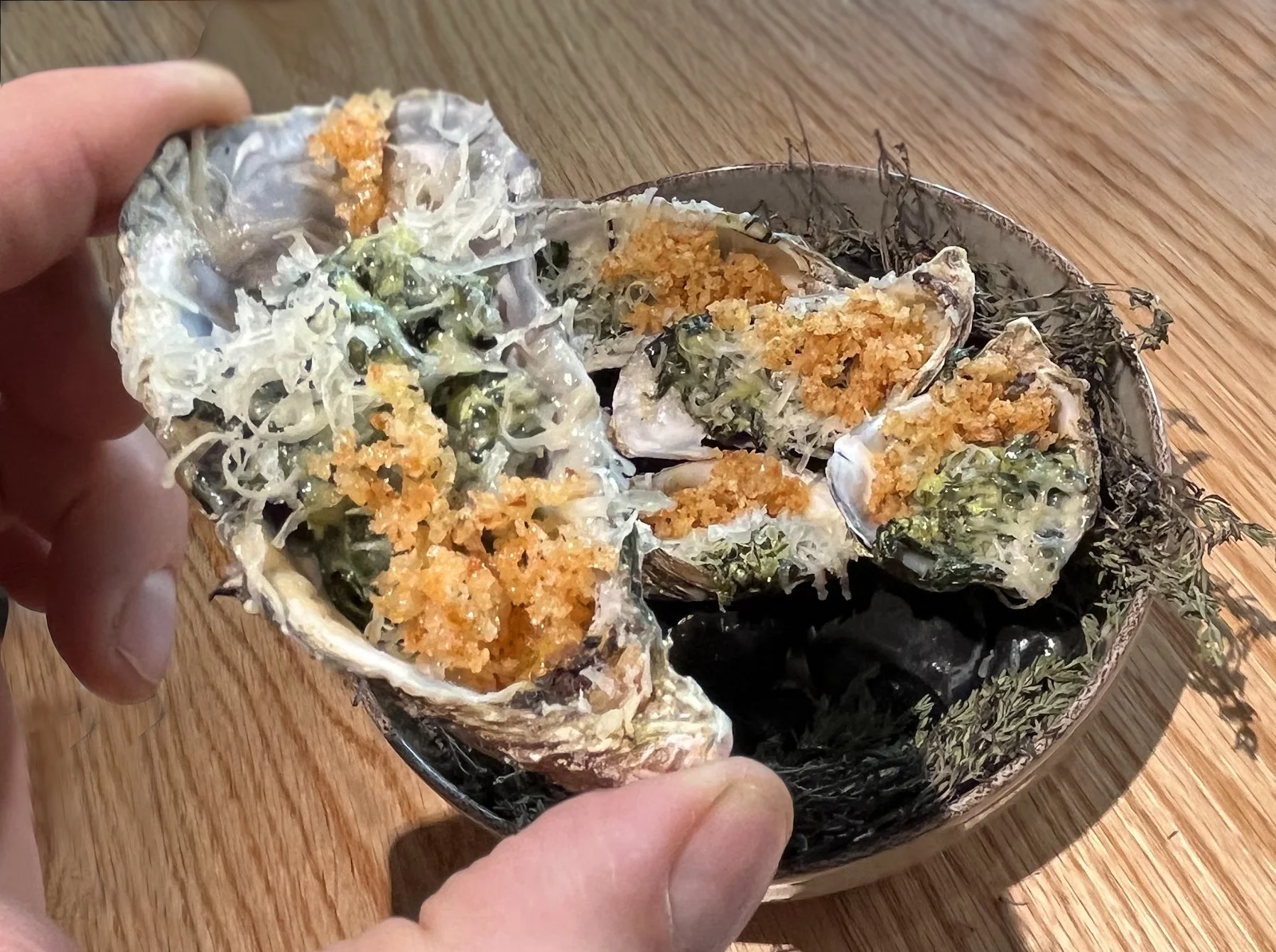Maza Bistrot – A Passionate Interpretation of Indian Cooking
The chefs at Maza Bistrot
Chaas aka buttermilk
I’m pleased that good Indian kitchens are finally making headway in our ever more gastronomically global capital. And it makes sense that we should embrace Indian culinary traditions here, as Indian and Mexican cooking are kissing cousins. The philosophy behind these two aggregations of regional cuisines is similar: the greatest dishes in both are amalgamations of many ingredients that are magically transformed, alchemically, into new flavors. The sum of the parts stands alone. There is no doubt that masalas and moles invite comparison. Poet Octavio Paz, who for a time served as Mexico’s ambassador to India, acknowledged the relationship in his memoir In Light of India, stating that the gastronomic repertoires of both countries, with their eccentric flavors and intense colors were "imaginative and passionate.”
The superb Maza Bistrot, which opened recently in the east end of Colonia Juarez is something to celebrate. It’s a relaxed, unpretentious venue for chef Rohan Chanana, who is from the culture-rich state of Rajasthan, and heads the kitchen with his wife Caroline Astier Chanana of Drôme, in southeast France. Rohan is passionate about what he cooks and unwilling to compromise on quality of ingredients. The menu, which is mostly Indian but veers into Francophile territory, features the chef’s eclectic selection of dishes from various regions of the subcontinent, ranging from chaats—appetizers known as street foods normally sold off a pushcart—to rich, labor-intensive main dishes. And Caroline brings a touch of France to the table.
But I’m relieved to report that no contrived fusing goes on here, only respectful acknowledgments, one culture gently overlapping the other.
We start our meal with a refreshing glass of chaach, savory buttermilk flavored with toasted cumin and black pepper. Though common throughout India, it is seldom offered on a Western menu.
Bhel puri
Bhel Puri is a chaat, an umbrella term for a wide range of street foods that usually feature some kind of fried or puffed dough or grain (in this case rice) topped with various ingredients such as tamarind, sweetened yogurt and herbs to create a balanced mélange of spicy, tangy, salty and sweet. Bhel Puri vendors, ubiquitous in Bombay typically carry their wares strapped to their bodies or sell from simple pushcarts. Maza’s version, meant to be shared, is perfectly balanced texturally and flavor-wise.
The Frankie Roll (AKA Kathi Roll), India’s version of the burrito, is to Calcutta denizens what the take-away pizza slice is to New Yorkers - that is, beloved and revered. Here it consists of a Malabar paratha - a rich, flaky flatbread, rolled around gently spiced chicken and egg, served with a tangy cilantro/mint dipping sauce and pickled onions.
French-leaning dishes include Pâté, simply stated as such. It is a fairly traditional French pâté de campagne, here acknowledging the matrimony of the chefs and the influence of the French community of Pondicherry by the inclusion of the aromatic chutney with which it is served.
Worlds collide: paté & frankie roll
The “thali”, a form of presentation as well as the plate itself, is India’s answer to our comida corrida, only all the (often many) small dishes are served at once, on a round metal tray, or, in the south and east, on a banana leaf laid directly on the table.
At Maza, the thali presentation (listed on the menu as “Curry du Jour”) is closer to a western main course with side dishes—main dish, vegetables, rice and bread. Maza’s thalis change from day to day, so are listed as simply “lamb, chicken or veg”. Be sure to ask, as these are the chef’s specialties, the gems of his kitchen.
On a recent visit, the lamb turned out to be nihari, a Mughal (Islamic) dish originating in Lucknow in the 18th century and popularized by the beloved Karim’s Restaurant in Old Delhi. It is a deep, buttery, brick-red stew of mutton, flavored with myriad spices including “long black pepper”, an aromatic cousin to our black pepper. As we were served this exquisite dish, the chef assured us that he had stayed late the previous night to get it started as long-term simmering is the key to the melding of aromas.
On another visit, we sampled a subtly spiced chicken “do pyaza” which means “two onions”, a Persian-inspired dish that incorporates caramelized and fried onions.
Biryani “en croute”
Biryani, long-grain basmati rice and meat slow steamed in vast sealed pots, is gently perfumed with sweet spices such as cardamom, cinnamon clove and saffron. It is also a legacy of the Mughal Empire, brought to Bengal on the East coast, and now the specialty of Calcutta as well as Dhaka in the former East Bengal, now Bangladesh. Here it is lovingly presented in the individual casserole in which it was prepared, sealed “en croute” with a dough crust that is cracked open with a spoon like the caramel on a crème brûlée, releasing a poof of ambrosial steam. It hits all the marks.
Papillote de poisson, also references the French lexicon but here is closer to the Bengali version of fish wrapped and steamed in a banana leaf, like a tamal.
Pistachio kulfi
Desserts include kulfi, India’s version of the paleta, chocolate or pistachio. And a particularly delightful gulab jamun, fried dough balls which swim in rosewater-perfumed syrup.
Maza’s menu includes an extensive cocktail and drink list. Organic and natural wines, many of them Mexican, are astutely selected. Ciders from the north of France are a very good idea for this type of food. Beers are standard, though a handful of the craft variety are on offer. And there’s the aforementioned chaach.
The space is open airy, and spartanly decorated. It exudes the anti-pretentious agenda of the owners; this is reinforced by cool Indian/house music which mercifully, stays in the background facilitating that dying art, conversation. Prices are reasonable, lunch will be $400-500 per person.
The food at Maza is imbued with the passion of the chefs. It is both homey and sophisticated, a perfect balance. Namaste!
Maza Bistrot
Londres 31, Colonia Juarez (see map)
Telephone 55 5925 7841
Open Monday, Wednesday, Thursday 12-9 pm, Friday, Saturday and Sunday 12-10, Closed Tuesday

